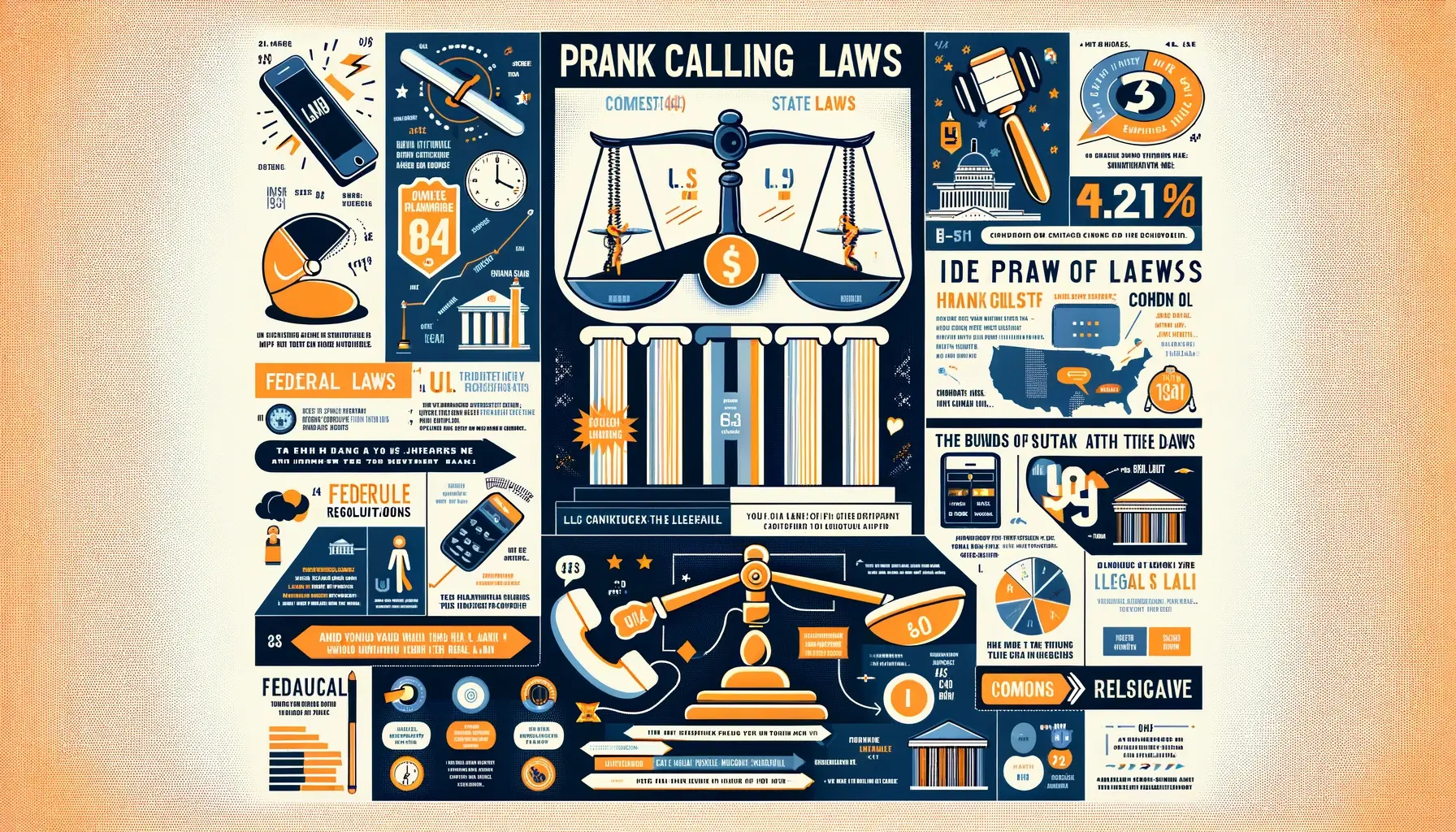In the tapestry of American jurisprudence, the line between humor and harassment can be thin. Prank calling, a once ubiquitous staple of youthful mischief, has evolved in the digital age, leading many to question: Is prank calling illegal in the U.S.? As a legal expert navigating the complexities of telecommunications law and privacy regulations, I aim to dissect this issue, offering clarity on when a seemingly harmless prank crosses into the realm of illegality.
The Legal Landscape of Prank Calling
At its core, prank calling involves placing a telephone call with the intent to deceive, annoy, or prank the recipient. While the concept seems straightforward, the legality of prank calling isn’t a blanket matter in the U.S. Instead, it’s a nuanced issue that intersects with federal and state laws concerning harassment, privacy, and telecommunications fraud.
Federal Regulations
Under federal law, particularly the Telephone Consumer Protection Act (TCPA) and the rules enforced by the Federal Communications Commission (FCC), unsolicited calls, including those of a prankish nature, are regulated. Moreover, the Truth in Caller ID Act of 2009 explicitly prohibits using false or misleading caller ID information with the intent to defraud, cause harm, or wrongfully obtain anything of value. This act underscores the legal boundary prank calls must not cross: the threshold of intention to harm or deceive.
State Laws and Variations
State laws play a pivotal role in defining the legality of prank calls. Many states have enacted statutes that specifically address telephone harassment, electronic communication harassment, or both. These laws often include provisions that make it illegal to make a telephone call with the intent to annoy, abuse, threaten, or harass any person at the called number.
Examples of State Legislation:
- California: Under California Penal Code Section 653m, it’s a misdemeanor to make any obscene, threatening, or repeated calls that intend to annoy or harass the recipient.
- New York: New York’s Penal Law § 240.30 makes it a misdemeanor to engage in aggravated harassment, which includes communicating, or causing communication to be initiated with someone, in a manner likely to cause annoyance or alarm.
When Does Prank Calling Become Illegal?
The transition from a harmless prank to an illegal act hinges on several factors:
- Intent: If the call is intended to deceive, cause harm, or illicitly obtain something of value, it likely crosses the line into illegality.
- Harassment: Repeatedly targeting the same individual(s) with calls intended to annoy or harass can escalate a prank into a criminal act.
- Threats and Obscenity: Any call that conveys threats, obscenities, or is of a sexually explicit nature can be deemed illegal, regardless of the prankster’s intent.
Consequences of Illegal Prank Calls
The repercussions of making illegal prank calls can range from civil penalties, such as fines and injunctions, to criminal charges, including misdemeanors or even felonies in severe cases. Convictions may result in fines, community service, probation, or imprisonment, highlighting the serious nature of what may have been intended as a playful act.
The Role of Technology and Anonymity
Advancements in technology have introduced new dimensions to the issue of prank calling, including caller ID spoofing and the use of internet telephony to place anonymous calls. While these technologies can enhance the anonymity of pranksters, they also fall under the scrutiny of laws like the Truth in Caller ID Act, making the illegal use of these technologies a federal offense.
Navigating the Fine Line: Recommendations
For those contemplating a prank call, consider the following recommendations to avoid legal pitfalls:
- Reflect on Intent: Ensure that the prank is not intended to harm, threaten, or harass.
- Know the Law: Familiarize yourself with both federal and your state’s specific laws regarding telecommunications harassment.
- Consider the Impact: Understand that what may seem like a harmless joke to you could be perceived as threatening or highly distressing to the recipient.
Conclusion
In summary, while prank calling is not universally illegal across the U.S., specific actions and intentions can render such calls unlawful under both federal and state laws. The evolution of technology and telecommunications law continues to shape the boundaries of what constitutes acceptable humor versus criminal behavior. As we navigate this digital age, recognizing the legal implications of our actions, even those meant in jest, becomes increasingly crucial. For those unsure about the legality of a planned prank call, consulting with a legal professional may provide valuable guidance, ensuring that fun and humor do not inadvertently lead to legal consequences.









Leave a Reply